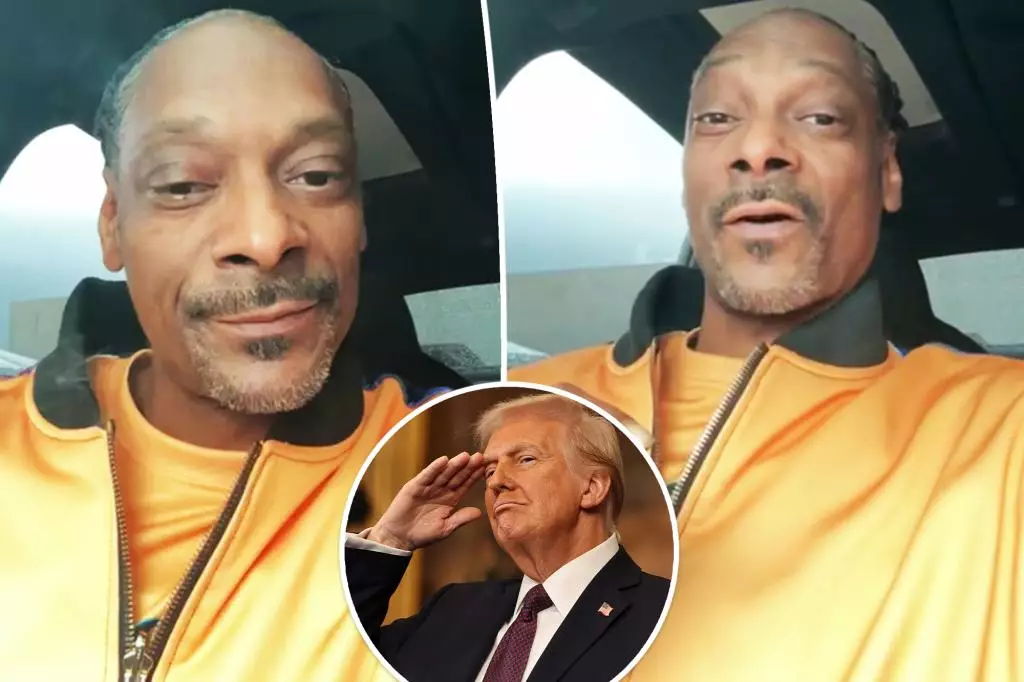Snoop Dogg has recently found himself at the center of controversy after his performance at President Trump’s inaugural Crypto Ball. Criticism erupted online, with many labeling the iconic rapper a “sellout.” In response, Snoop posted a heartfelt message on Instagram, asserting his identity and resilience in the face of criticism. His strategy—combatting negativity with a message of love and support—is a testament to his belief in community upliftment. However, this incident raises essential questions about the intersection of celebrity culture and political alignment, particularly within the Black community.
The rapper emphasized his identity and pride in being a Black man, reminding his audience that external opinions should not define one’s self-worth. His statement, “I love too much” serves as a reminder of the power of love over hate, a poignant sentiment in today’s highly polarizing environment. Despite losing over 570,000 followers on Instagram and a significant number on X, Snoop maintains a significant social media presence, demonstrating that celebrity status comes with both immense support and unrelenting scrutiny.
The quick backlash from certain segments of his fanbase speaks volumes about the heightened sensitivity surrounding political affiliations. For many, the choice to participate in an event hosted by a polarizing figure like Trump feels like a betrayal. Snoop’s message of resilience does resonate with many who champion diversity and individual choice, but it also confronts the uncomfortable reality that public figures are often held to standards that can seem rigid or unfair.
Interestingly, Snoop Dogg’s relationship with Trump appears to have evolved over the years. Once vocal against Trump and his supporters, Snoop has since acknowledged the positive impacts of the former president’s actions—such as the pardon of Michael Harris, a co-founder of Death Row Records. This highlights a critical aspect of celebrity politics: personal experiences sometimes outweigh broader political ideologies. Snoop’s journey from criticism to a more nuanced view illustrates the complexity of political identity among celebrities, inviting deeper inquiry into how personal and communal interests can shape public opinion.
Snoop Dogg’s experience emphasizes a broader issue in the narrative of Black celebrities in America. Many observers note a tendency within the community to rally support for one another, as Snoop mentioned. Yet, the swift condemnation he faced demonstrates a fractious space where one misstep can lead to severe backlash. This raises questions about what it means to stand in solidarity with one’s community while pursuing individual opportunities that, while they may not align perfectly with public sentiment, highlight personal growth and change.
Snoop Dogg’s experience encapsulates not just a personal moment of backlash but a reflection of the intricate dynamics between celebrity, identity, and community in a politically charged atmosphere. As discussions continue, it becomes increasingly important to recognize the humanity behind the headlines—and the strength it takes to navigate through the waters of fame, criticism, and conflict.
